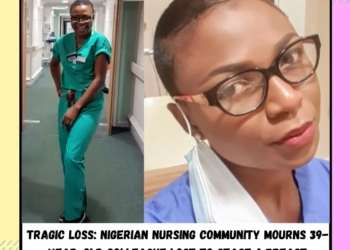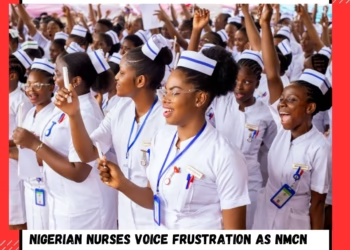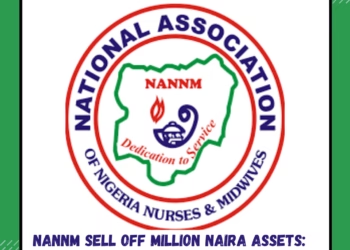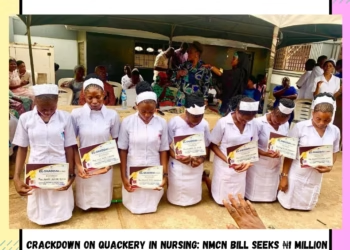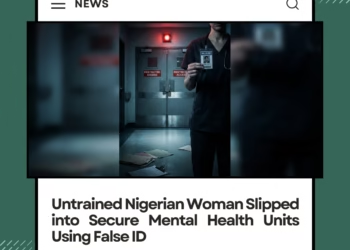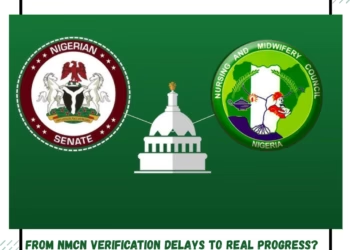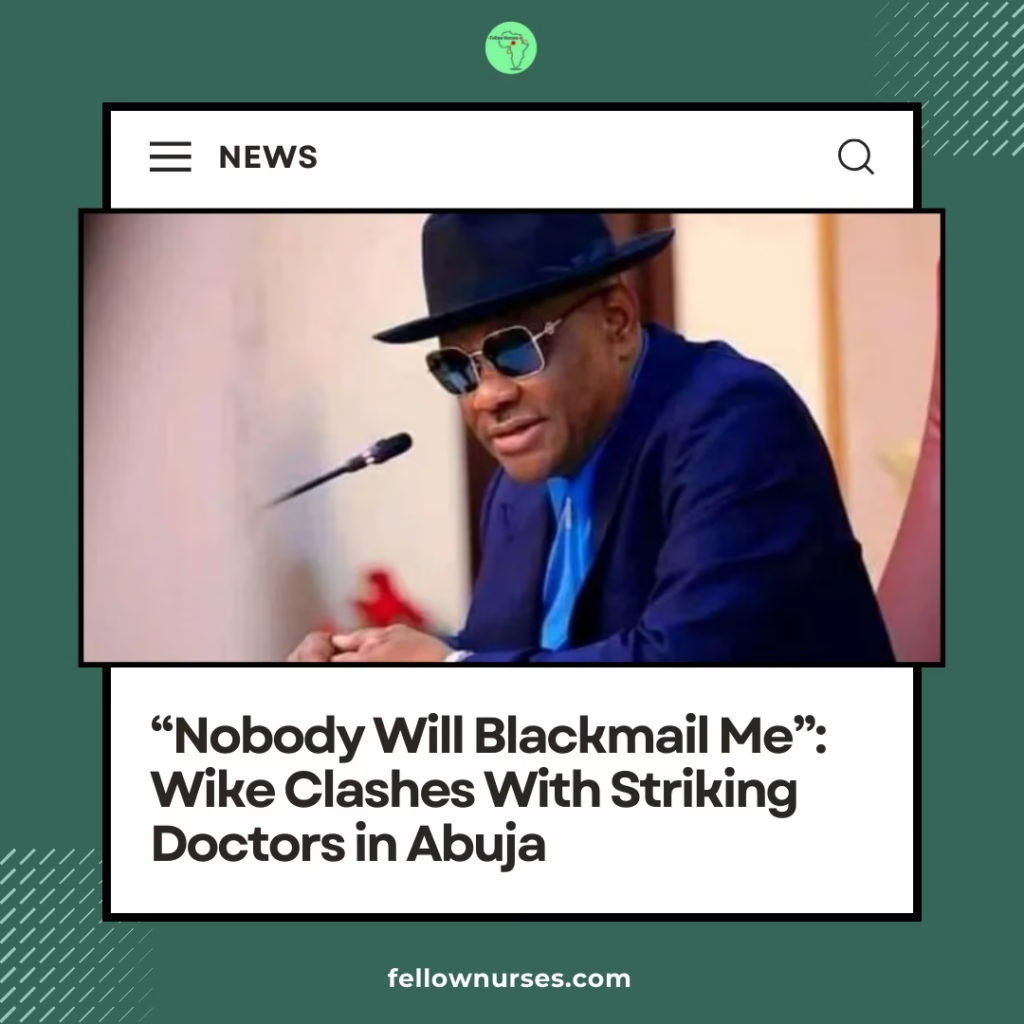
The standoff between the Federal Capital Territory Administration (FCTA) and striking resident doctors has entered a fiery new phase, as FCT Minister Nyesom Wike declared he will not be “blackmailed” into abandoning infrastructure projects for healthcare concessions.
Speaking Thursday at the flag-off of the Arterial Road N1 project—a multi-billion-naira road linking Wuye District to Ring Road II—Wike dismissed the indefinite strike as “political incitement,” rather than a legitimate expression of grievance.
“Nobody will blackmail me. Nobody will stop me from doing what I think is right and doing it at the right time,” Wike thundered, accusing civil servants and political actors of exploiting the crisis to weaken his administration.
Roads vs Hospitals: Wike’s Priorities Under Fire
The strike, spearheaded by the Association of Resident Doctors in FCTA hospitals, has crippled service delivery in Abuja’s government hospitals. Patients are stranded, nurses overstretched, and consultants left to plug gaping holes in service.
Critics accuse the FCTA of prioritizing grand roads over lifesaving hospitals. But Wike hit back, pointing out that the 2025 capital budget earmarked ₦25 billion for health, insisting bureaucracy—not neglect—has delayed payments and recruitment.
“The people who now say they are being owed allowances, fine. We just appointed a new Head of Service. Once the Treasury presents the bills, they will be paid. But everything must follow due process,” he explained.
A Minister’s Political Battle Cry
In his trademark combative style, Wike accused “inciters within the civil service” of fueling the doctors’ action. He insisted he would not bow to street protests or demonstrations designed to embarrass his government.
“If you tell me you will demonstrate, block the road—fine. Allow them. But nobody can stop me from holding this occasion today. Enough is enough,” he warned, drawing a sharp line between governance and agitation.
The Doctors’ Grievances
Resident doctors in FCT hospitals have downed tools over:
- Unpaid allowances dating back months.
- Failure to employ new doctors despite severe shortages.
- Poor working conditions in under-resourced hospitals.
Nigeria’s doctor-patient ratio is already dire—1:10,000. With Abuja’s strike dragging on, patients in the capital face longer queues, reduced services, and in some cases, life-threatening delays.
What Next?
Wike has promised dialogue—“but on his terms.” For now, the minister’s defiance raises the stakes in a conflict that mirrors Nigeria’s deeper health crisis: underfunded hospitals, bureaucratic inertia, and a political class often accused of valuing concrete over care.
As Abuja’s residents wait for resolution, the question remains: will the government’s roads outpace its healthcare—or will doctors’ voices finally force a reckoning?
Fellow Nurses Africa is the independent voice of African nursing, we educate, inform and support nurses across Africa.

